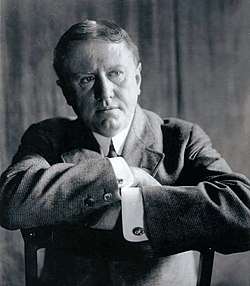O. Henry Quote
John Perkins was not accustomed to analyzing his emotions. But as he sat in his Katy-bereft 10×12 parlor he hit unerringly upon the keynote of his discomfort. He knew now that Katy was necessary to his happiness. His feeling for her, lulled into unconsciousness by the dull round of domesticity, had been sharply stirred by the loss of her presence. Has it not been dinned into us by proverb and sermon and fable that we never prize the music till the sweet-voiced bird has flown — or in other no less florid and true utterances?
O. Henry
John Perkins was not accustomed to analyzing his emotions. But as he sat in his Katy-bereft 10×12 parlor he hit unerringly upon the keynote of his discomfort. He knew now that Katy was necessary to his happiness. His feeling for her, lulled into unconsciousness by the dull round of domesticity, had been sharply stirred by the loss of her presence. Has it not been dinned into us by proverb and sermon and fable that we never prize the music till the sweet-voiced bird has flown — or in other no less florid and true utterances?
Related Quotes
About O. Henry
William Sydney Porter (September 11, 1862 – June 5, 1910), better known by his pen name O. Henry, was an American writer known primarily for his short stories, though he also wrote poetry and non-fiction. His works include "The Gift of the Magi", "The Duplicity of Hargraves", and "The Ransom of Red Chief", as well as the novel Cabbages and Kings. Porter's stories are known for their naturalist observations, witty narration, and surprise endings.
Born in Greensboro, North Carolina, Porter worked at his uncle's pharmacy after finishing school and became a licensed pharmacist at age 19. In March 1882, he moved to Texas, where he initially lived on a ranch, and later settled in Austin, where he met his first wife, Athol Estes. While working as a drafter for the Texas General Land Office, Porter began developing characters for his short stories. He later worked for the First National Bank of Austin, while also publishing a weekly periodical, The Rolling Stone.
In 1895, he was charged with embezzlement stemming from an audit of the bank. Before the trial, he fled to Honduras, where he began writing Cabbages and Kings (in which he coined the term "banana republic"). Porter surrendered to U.S. authorities when he learned his wife was dying from tuberculosis, and he cared for her until her death in July 1897. He began his five-year prison sentence in March 1898 at the Ohio Penitentiary, where he served as a night druggist. While imprisoned, Porter published 14 stories under various pseudonyms, one being O. Henry.
Released from prison early for good behavior, Porter moved to Pittsburgh to be with his daughter Margaret before relocating to New York City, where he wrote 381 short stories. He married Sarah (Sallie) Lindsey Coleman in 1907; she left him two years later. Porter died on June 5, 1910, after years of deteriorating health. Porter's legacy includes the O. Henry Award, an annual prize awarded to outstanding short stories.
Born in Greensboro, North Carolina, Porter worked at his uncle's pharmacy after finishing school and became a licensed pharmacist at age 19. In March 1882, he moved to Texas, where he initially lived on a ranch, and later settled in Austin, where he met his first wife, Athol Estes. While working as a drafter for the Texas General Land Office, Porter began developing characters for his short stories. He later worked for the First National Bank of Austin, while also publishing a weekly periodical, The Rolling Stone.
In 1895, he was charged with embezzlement stemming from an audit of the bank. Before the trial, he fled to Honduras, where he began writing Cabbages and Kings (in which he coined the term "banana republic"). Porter surrendered to U.S. authorities when he learned his wife was dying from tuberculosis, and he cared for her until her death in July 1897. He began his five-year prison sentence in March 1898 at the Ohio Penitentiary, where he served as a night druggist. While imprisoned, Porter published 14 stories under various pseudonyms, one being O. Henry.
Released from prison early for good behavior, Porter moved to Pittsburgh to be with his daughter Margaret before relocating to New York City, where he wrote 381 short stories. He married Sarah (Sallie) Lindsey Coleman in 1907; she left him two years later. Porter died on June 5, 1910, after years of deteriorating health. Porter's legacy includes the O. Henry Award, an annual prize awarded to outstanding short stories.
